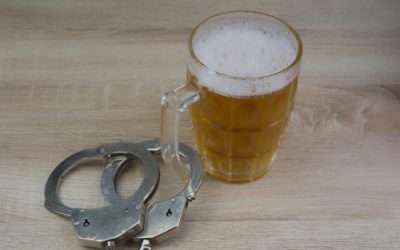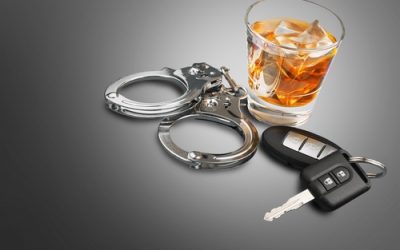The state of Michigan keeps track of all sorts of drunk driving statistics in the annual Drunk Driving Audit. The same audit keeps track of drugged driving statistics as well. The audits includes how many breath tests law enforcement administered, and the results of those breath tests. Stopping drivers and administering the breath test is a key component of the state’s effort to keep drunk drivers off the road.
The audit also includes information on alcohol-involved crashes, injuries and fatalities.
Michigan’s OWT (Operating While Intoxicated) law considers you to be legally impaired if your blood alcohol content (BAC) is .08 or above. There is an effort in the state house to reduce the legal threshold for drunk driving to .05 BAC, but it is not gaining much traction. Utah is the only state in the nation as of this writing with a .05 legal threshold.
Statewide Breath Testing and Blood Testing Results
The latest Drunk Driving Audit (DDA) from 2018 indicates that statewide, law enforcement attempted to administer a total of 31,856 breath or blood tests. That number is down slightly from 32,468 in 2017. The following table shows what the results were.
2018 Totals | .00 | .01-.07 | .08-.09 | .10-.16 | .17-.99 |
Breath Tests 17,723 | 586 | 576 | 1,237 | 8,396 | 6,928 |
Blood Tests | 6,317 | 187 | 201 | 1,279 | 1,848 |
Refusals 4,301 | N/A | N/A | N/A | N/A | N/A |
Please note that a refusal of a breath test in Michigan results in an automatic license suspension. This is due to the implied consent law.
Statewide Drunk Driving Crash Statistics
The same drunk driving audit for 2018 reports there was a total of 312,798 crashes from all causes. The audit breaks down the drunk driving crash statistics by accidents with injury, fatal accidents, and property damage only incidents.
Injury Crashes
- 3359 alcohol-only crashes involved injuries.
- 4593 people were injured in alcohol-only crashes.
- 542 crashes involved both drugs and alcohol.
- 799 people were injured in crashes involving both drugs and alcohol.
Drunk Driving Fatalities
- 174 alcohol-only crashes were fatal.
- 113 fatal crashes involved both drugs and alcohol.
- 187 people died in alcohol-only crashes.
- 128 people died in crashes involving both drugs and alcohol.
Property Damage Crashes
- 5025 alcohol-only crashes resulted only in property damage.
- 573 property damage only crashes involved both drugs and alcohol.
The vast majority of drivers arrested for drunk driving in Michigan in 2018 were men.23,004 men were arrested on drunk driving charges, compared to 8852 women.
Drunk Driving and Ignition Interlocks in Michigan
Michigan law currently requires Habitual Offenders with two or more OWI convictions within seven years, and first-time offenders with a high BAC to install breath alcohol ignition interlock devices (BAIIDs) in their vehicles as part of earning their unrestricted driving privileges back.
A BAAID is basically an in-car breathalyzer. You must blow into it each time you want to start your car. Pass the test, and you can start the car. If the device detects alcohol (as little as .02) it will prevent you from starting the car. You can try again in a few minutes. The BAIID also requires you to submit periodic samples, called rolling retests, once you have started driving. If you fail the test, the device will not stop your car’s engine, so you don’t have to worry about being stranded in the middle of the highway. But the device will record the test failure, and you may face consequences.
The state requires all certified BAIID vendors like ALCOLOCK to meet stringent requirements as far as the devices themselves, reporting of test results, and requires vendors to have a network of installation locations. You can only get a BAIID installed, serviced, and removed by a certified vendor.
You are required to comply fully with the BAIID restricted driver program, and any violations will be reported to the Secretary of State, as they supervise the program.
Ignition Interlock Device Locations in Michigan
ALCOLOCK has dozens of breath alcohol ignition interlock device installation locations in Michigan, so you’re sure to find one that is convenient for you. Our BAIIDs are approved by the state, and we offer quick and responsive installation and service appointments.
You should plan on having someone drive you and your vehicle to your installation appointment. Once the device is installed, you are free to drive. Your installation appointment should take about an hour. That time includes the actual installation of the device, where the technician connects it to your vehicle’s starter, teaching you how to use it, and making your first service appointment.
At each service appointment, the technician sends the information the device has recorded to the Secretary of State. The technician will also recalibrate the device as necessary, and answer any questions you may have.
To schedule your installation, call one of our Michigan service providers directly, or call us at 866-700-9300. You can also use our contact form.



